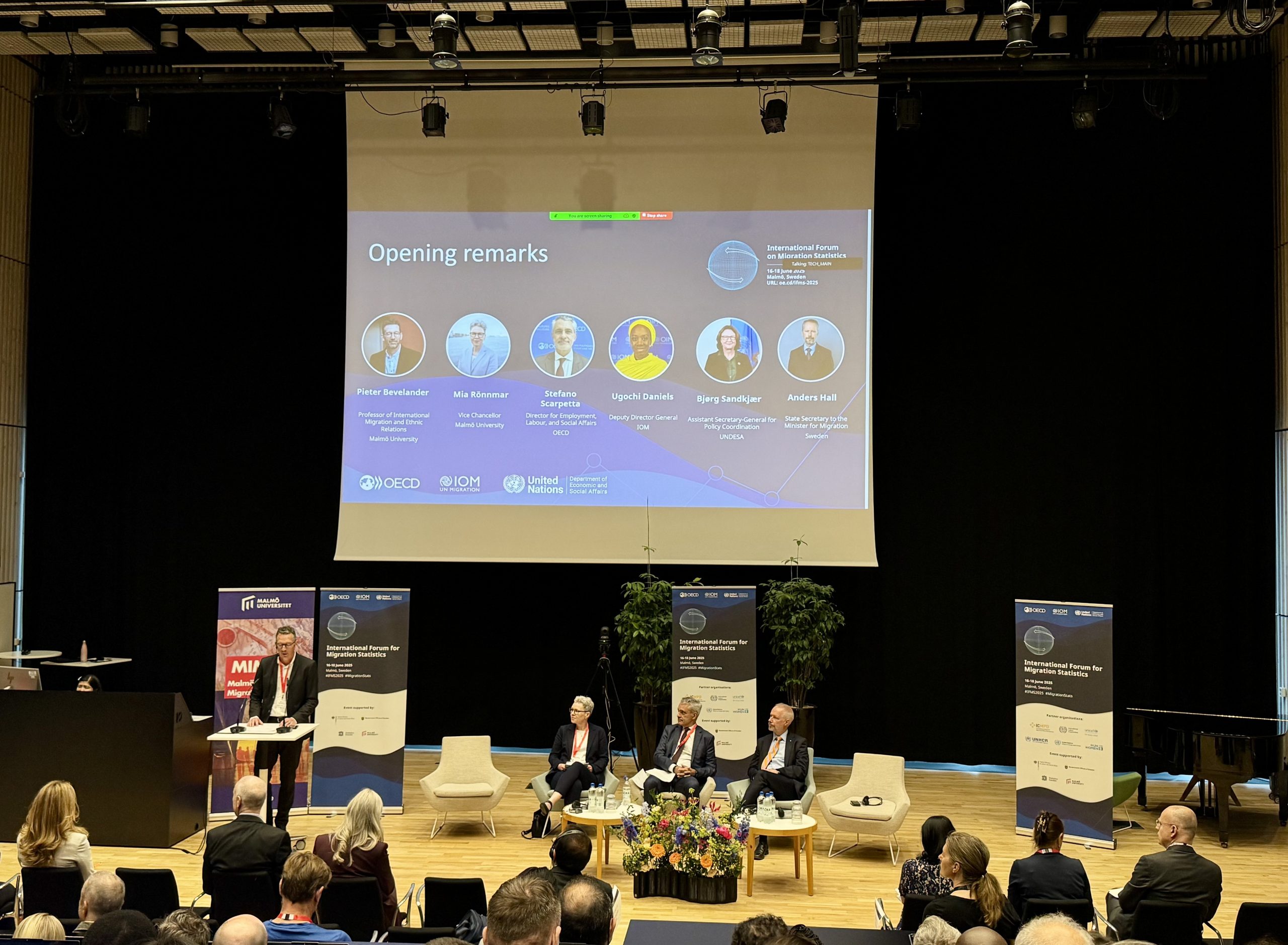16th – 18th June
The 4th International Forum on Migration Statistics (IFMS) 2025 convened in Malmö, Sweden. The three-day event mobilised expertise from diverse disciplines to reinforce the critical role that robust data and statistics play in supporting evidence-based policymaking and monitoring progress toward global commitments, including the Sustainable Development Goals and the Global Compact for Safe, Orderly and Regular Migration. Through the efforts of several EGRISS members and with support from the Secretariat, the Expert Group was involved in several parallel sessions and paper presentations included in the agenda, thereby increasing the visibility of forced displacement-related matters during the Forum compared to the last meeting in Santiago, Chile in 2023. These included:
- How to identify forcibly displaced people in household surveys: theory, applications and findings from case studies
- Measuring progress towards solutions to internally displaced persons in Colombia and Somalia, a peer-exchange conversation
Throughout the Forum, the revised Recommendations on Statistics of International Migration and Temporary Mobility, endorsed by the UN Statistical Commission at its 56th Session, were emphasized. This new document ensures better alignment with the IRRS, with areas of harmonisation including statistical indicators prioritised across both sets of Recommendations, technical approaches to data collection using both traditional and non-traditional sources, and operational coordination at national, regional, and international level beyond normative guidance. Technical discussions throughout the IFMS emphasized how recent advances in data collection and analysis are transforming migration statistics. Speakers highlighted innovative uses of administrative data, big data sources, and geospatial information to improve data availability, timeliness, and accuracy.
Furthermore, other key themes from the conference were well aligned with EGRISS’ priroities such as highlighting the added value of partnerships and cooperation to improve migration and displacement statistics, and the unique policy-advantages of pursuing statistical inclusion of refugees in national data systems. For the latter, key presentations from Ruvendrini Menikdiwela, UNHCR’s Assistant High Commissioner for Protection, Gunilla Fincke, Director-General of the German Federal Ministry of Labour and Social Affairs, and Peter Abad Altamirano, Deputy Head of Statistics of Peru’s National Institute of Statistics and Informatics brought this matter home showcasing both the existing data gaps prevalent due to lack of statistical inclusion and the powerful policy impact in contexts as far apart as Germany and Peru when it does happen.
_
Organised by the Organization for Economic Cooperation and Development (OECD), International Organization for Migration (IOM), UN Department of Economic and Social Affairs (UN DESA), and Statistics Sweden, with support from the Swedish government, the IFMS was hosted by Malmö University.

